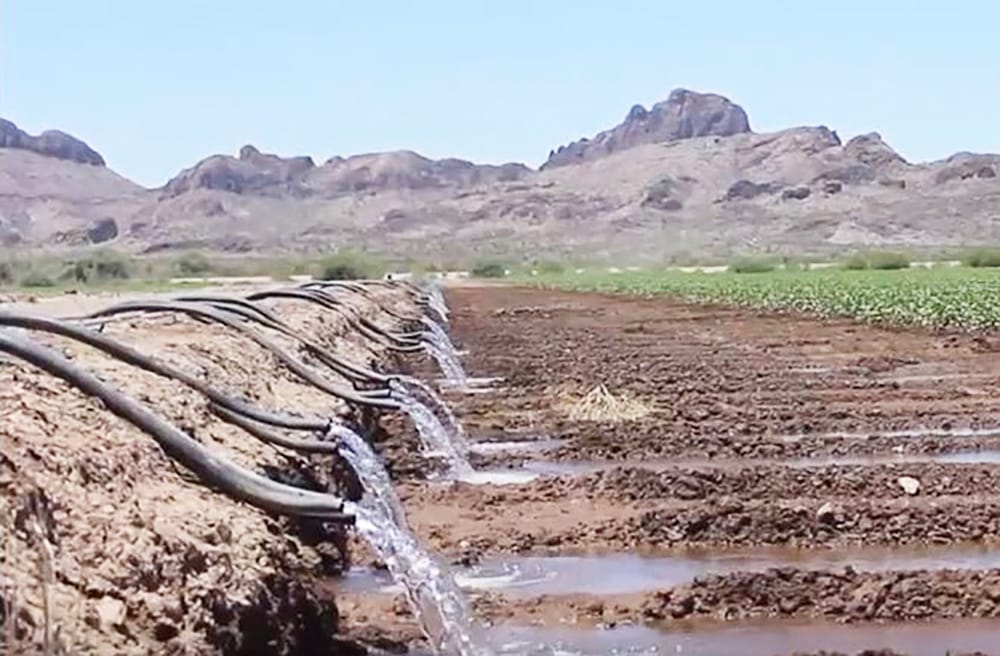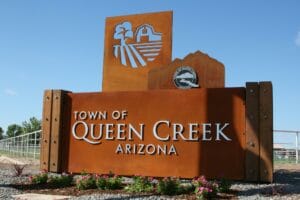Water flows in 2017 to a Pinal County cotton farm at the base of the Sawtooth Mountains.|| Arizona Farm Bureau
By Clara Migoya || Arizona Republic
Researchers from the University of Arizona are working on groundwater and agricultural research that could help sustainable farming practices in central Arizona.
The project, funded with a $10 million grant from the U.S. Department of Agriculture’s National Institute of Food and Agriculture and led by the University of California, Davis, integrates over two dozen experts from institutions in Arizona, California and New Mexico.
“We need research. We need to know what is happening in the field. I can see what is happening, but I’ll be darned if I know how to interpret it about half the time,” said Ron Rayner, a longtime farmer with large operations in Arizona and California who serves as an advisory board member for the project.
As a megadrought drains the Colorado River reservoirs and water cuts are enacted, farmers across the Southwest are turning to groundwater to sustain their operations. This has caused unprecedented overdraft in aquifers in the Central Valley of California, central Arizona and the Lower Rio Grande basin in New Mexico, according to project leaders.
The multistate groundwater research project aims to lessen the impact on the aquifers, while helping farmers and irrigation districts adapt to the new reality.
Debankur Sanyal presents preliminary results of cover crop and soil health research in Pinal County, on Jan. 25, 2023.
In Pinal County, where Colorado River cuts were the harshest, growers saw an 87% reduction in surface water allotments from one year to the next. This year, through outside agreements, they will receive 5% of what they were allotted in 2021.
“It’s basically back to the days before we had (Central Arizona Project) surface water,” said Bryan Hartman, a farmer and board member of the Maricopa-Stanfield Irrigation and Drainage District, who is also on the advisory board for the university project.








